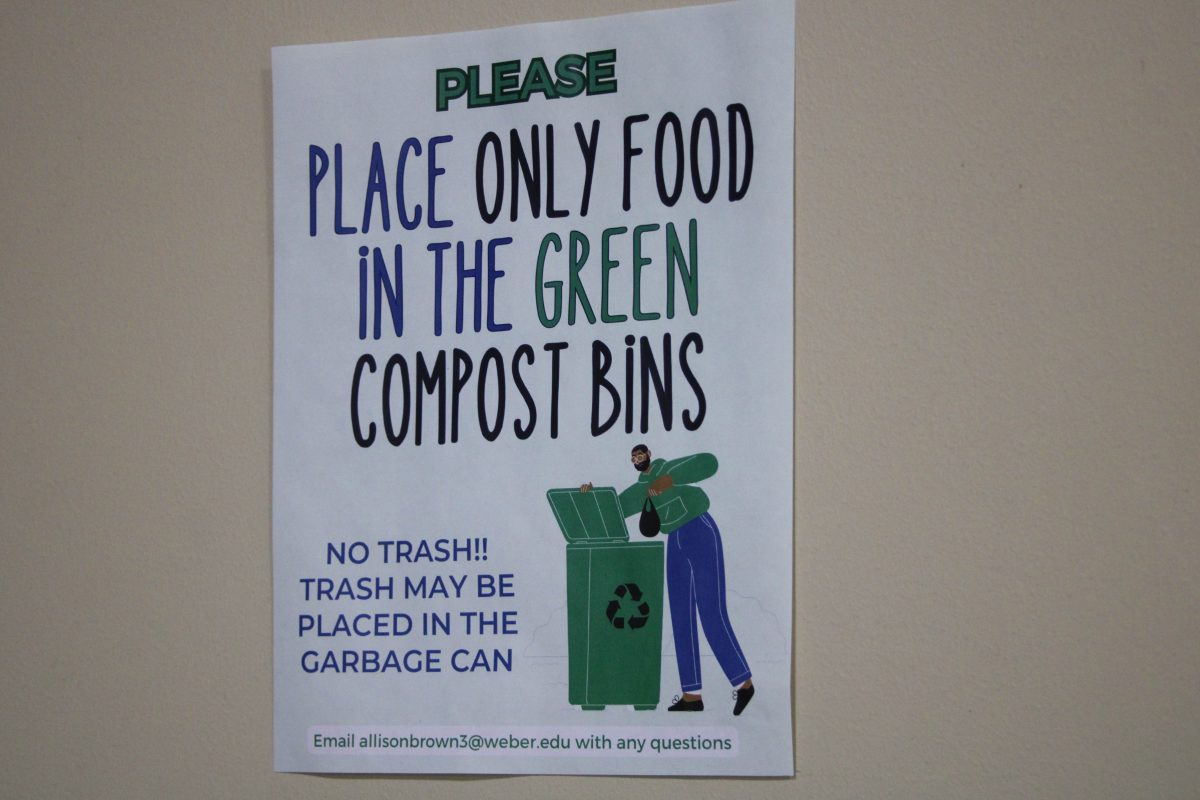By Teryn Lyman
The Weber State University Financial Aid Office recently sent a notice to all students about potential penalties for those convicted of “possession or sale” of a controlled substance under any federal or state law.
“Individuals enrolled in classes who would otherwise be eligible for Federal Financial Aid would no longer be able to receive any grant, loan, or work assistance during the period beginning on the date of such conviction,” said the email.

Any student who has ever filled out a FAFSA has been asked if they . If the answer is no, the question and what it actually entails is passed over and forgotten, but if the student has to answer yes, further inquiries will be made about eligibility.
The ineligibility period if convicted of possession of a controlled substance is one year for the first offense, two years for the second, and the third offense is indefinite. Ineligibility if convicted of the sale of a controlled substance is two years for the first offense and indefinite for the second.
According to Whitehouse.gov, “If you are convicted of a drug-related felony or misdemeanor that took place while you were receiving federal student aid, you will become ineligible to receive further aid for a specified period of time upon conviction.”
Even if a student answers yes to having been convicted of a drug charge, the Federal Student Aid Information Center recommends still completing and submitting the FAFSA, as the student may still be eligible for aid from his or her state or college.
According to Students for a Sensible Drug Policy, a nonprofit advocacy and education organization based in Washington D.C., more than 200,000 students to date have been deemed ineligible for financial aid due to misdemeanor drug charges.
Clint Meyers, a freshman working on his generals at WSU, said he is “glad he was able to qualify for financial aid” even though he has misdemeanor drug charges on his record. “That’s the only way I would even be in school right now,” he said.
Meyers has had epilepsy since he was in eighth grade. Marijuana is a proven form of treatment for him and many others with the same condition. However, because the drug is still against the law in Utah, Meyers has been charged with possession of marijuana, a charge that is still on his record.
While some WSU students may feel that people with drug charges do not deserve any federal financial help, others believe these are the type of people who need to go to school and often need the most help doing so.
“It depends on how long ago it was and what the charge was, but I think everyone deserves a second chance,” said Amilaya Davis, a freshman majoring in health sciences.
On the opposite side of the spectrum is Danny Lebsock, a junior in communications, who said, “If you get convicted of drug charges, there’s no reason you should get government money to continue to go to school.”
Amber Hansen, a WSU senior, said she feels people are too quick to judge. “Everyone has their own story and their own extenuating circumstances, and everyone needs a little extra help every once in a while.”
The Federal Student Aid website recommends students make sure they understand their status and “don’t just assume you can’t get aid.”
Frequently asked questions and their answers regarding eligibility for federal student aid include the following:
Is it true that drug conviction can affect eligibility to receive financial aid?
Yes, eligibility may be suspended if the offense occurred while receiving federal student aid (grants, loans, work study). Eligibility can be regained by successfully completing an approved drug rehabilitation program or by passing two unannounced drug tests administered by an staff member of an approved drug rehabilitation program.
If on probation or parole, can an individual still receive financial aid?
Yes. If on probation, parole or living in a halfway house, one may be eligible for financial aid, but eligibility may be limited.
If incarcerated, can an individual still receive financial aid?
An individual imprisoned in a federal or state institution cannot receive a federal Pell Grant or federal student loans. If in an institution other than federal or state, one does not qualify for federal student loans, but may apply for a federal Pell Grant. Eligibility is limited. Once released, however, most eligibility limitations will be removed.
For more information, students can contact the WSU Financial Aid office at 801-626-7569.


















